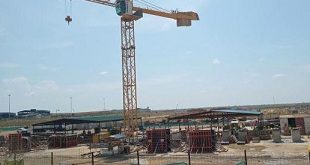
Frank Sebbowa is the outgoing Executive Director of Uganda Investment Authority. He spoke to Ian Katusiime about his accomplishments and investment issues.
What are some of the achievements you registered at UIA?
For the four years I was at UIA, I brought calm to the organisation. There was a lot of infighting and outfighting. We also recruited many young people and filled many positions. By the time my term came to an end, 60% of the personnel were new people. Four years ago, Namanve Industrial Park was a forest and now boasts of 22 companies, with others still setting up. We also increased the road network from 15-40km, making the park accessible.
In addition, we have also done some work in other parks. For instance, we constructed roads in the industrial park in Kasese and Soroti, and supplied some with water and electricity. We also acquired land in Moroto for an industrial park. So, I believe under my leadership, we did fairly well given the scarce resources that the government availed us.
What have been the key benefits from the Namanve Industrial Park from the time you joined the UIA?
Investors in Namanve bring in $50million annually and they consume electricity and water where they also pay taxes. Currently there are 22,000 direct jobs that have been created though there are also architects, designers, and engineers on several projects.
Coca Cola alone employs over 500 people. Kyagalanyi Coffee has expanded with investors from Netherlands meaning more jobs and revenue to the government. Similarly, Roofings Rollings Mills expanded its plant and several freight companies have also come in.
Uganda Police Force also built a factory producing water and uniforms while Office of the Prime Minister has set up a logistics centre for disaster preparedness. All this investments have contributed to creation of jobs and revenue generation to the government.
There was a plan in March this year to create 22 new industrial parks. Isn’t this being over ambitious?
That is true but subsequently the President decided to focus on five industrial Parks including Namamve and Nakasongola.
Some analysts are saying we should revise the Foreign Direct Investment concept because it is no longer leading to growth of local economies due to constant repatriation. What’s your take?
I would look at it differently. We have had privatisation policy for more than 20 years and we should examine the benefits in the sectors where it has worked and leave it to continue. In other sectors, where it has not been rosy, it would require Uganda Development Corporation to come in vigorously.
I would not look at the dollars they take out because they bring in their own dollars through expertise and equipment. Not many people are skilled in this country. If it comes in that form, then they are entitled to take it as a return on investment.
If a company has come in and has had no impact on technology transfer, we would be right to scrutinise that one or if a company came in and failed to create jobs, that would be a cause for concern.
A government corporation should take lead in some manufacturing areas. For example, government could revisit those demonstration ranches where neighbouring people can become out growers. Then government can supply seed, seed animals, bringing in medicine in bulk, herbicides. I think we let that go a bit too quickly.
For things like telecoms, schools, the private sector is doing well. Government can invest in Uganda Airlines, we had Air Uganda and it failed so I think in private hands, airline business would not prosper.
The government should also take over power generation. When left to private sector, costs go up to the sky. Private sector players borrow money from expensive markets which is reflected in tariffs. But the government can use its own resources for these projects and keep tariffs low.
There has been criticism of UIA that it gave tax holidays and other perks to foreign investors at the expense of their local counterparts. What is your comment on this?
At the moment, UIA has no authority to give tax incentives; it can only be done by Uganda Revenue Authority and Ministry of Finance. That responsibility was taken away from UIA in 2005.
However, tax holidays are negotiable, and companies like Roofings Rolling Mills negotiated. So technically, the holidays are given to projects.
If you don’t have a viable project, you will not be given an incentive. A small shop is not something the government is interested in. So, to say that local people were denied incentives is not correct. Local people who applied got. The issue is that some of our local people do not like to reveal the full extent of projects. Even those who are formal shy away.
Right now, about 60% of the land at Namanve has gone to local companies. Steel and Tube, Mariannah Industries, Victoria Seeds, are all local companies and were given land at a discounted rate.
What are you doing currently?
I and my colleagues are running a consultancy firm. We think we can guide people in the energy sector on what needs to be done. Uganda has just started on energy revolution and we can give some guidance to investors. I have a few lawyers and young business ladies. I am supporting one of the thermal companies guiding them on corporate governance issues.
****
editor@independent.co.ug
 The Independent Uganda: You get the Truth we Pay the Price
The Independent Uganda: You get the Truth we Pay the Price



